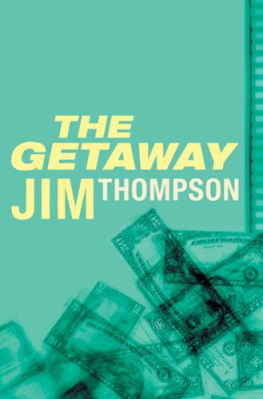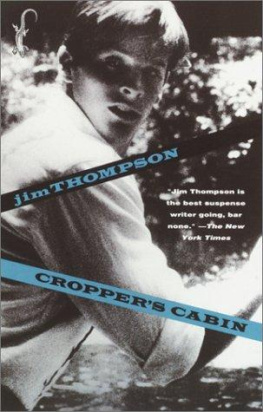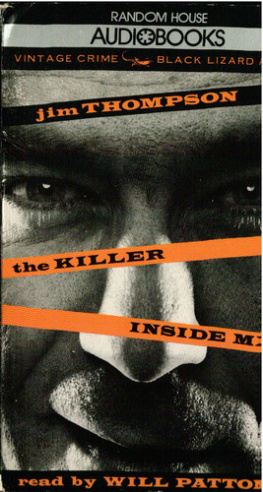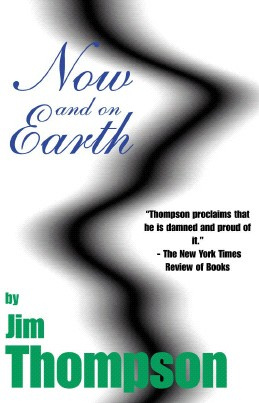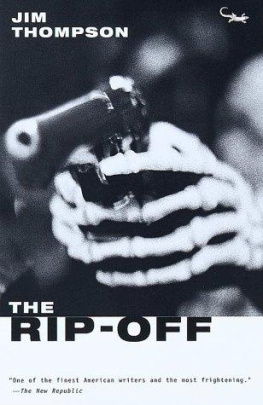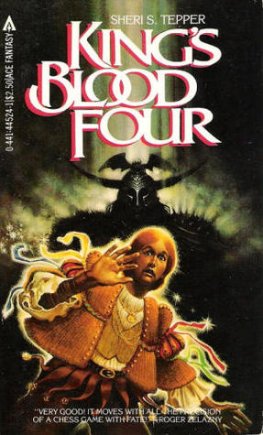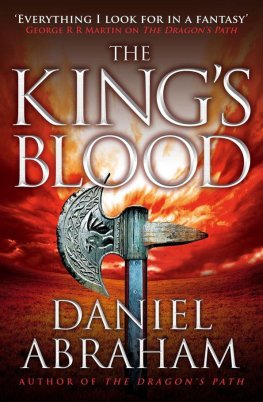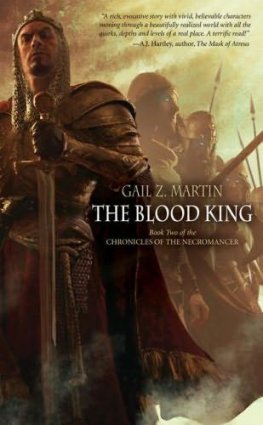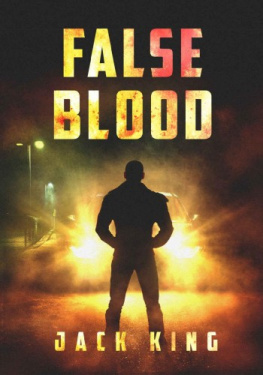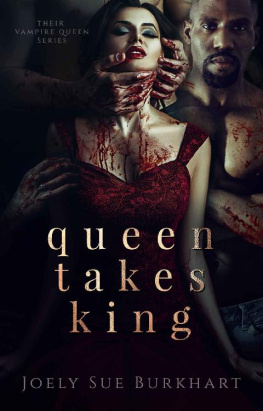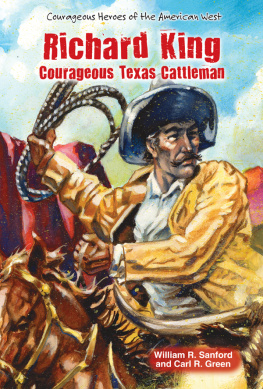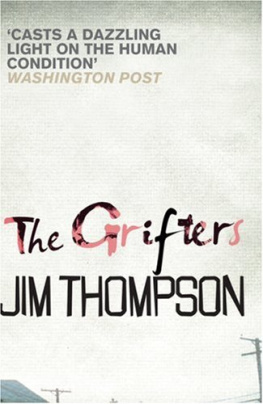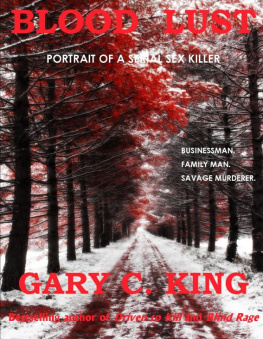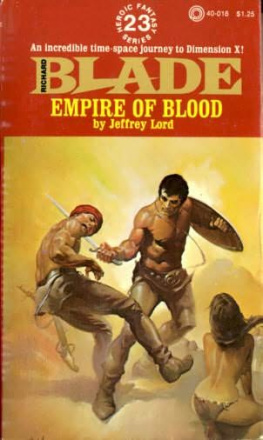Jim Thompson - King Blood
Here you can read online Jim Thompson - King Blood full text of the book (entire story) in english for free. Download pdf and epub, get meaning, cover and reviews about this ebook. year: 1989, publisher: Corgi, genre: Detective and thriller. Description of the work, (preface) as well as reviews are available. Best literature library LitArk.com created for fans of good reading and offers a wide selection of genres:
Romance novel
Science fiction
Adventure
Detective
Science
History
Home and family
Prose
Art
Politics
Computer
Non-fiction
Religion
Business
Children
Humor
Choose a favorite category and find really read worthwhile books. Enjoy immersion in the world of imagination, feel the emotions of the characters or learn something new for yourself, make an fascinating discovery.
- Book:King Blood
- Author:
- Publisher:Corgi
- Genre:
- Year:1989
- Rating:4 / 5
- Favourites:Add to favourites
- Your mark:
- 80
- 1
- 2
- 3
- 4
- 5
King Blood: summary, description and annotation
We offer to read an annotation, description, summary or preface (depends on what the author of the book "King Blood" wrote himself). If you haven't found the necessary information about the book — write in the comments, we will try to find it.
King Blood — read online for free the complete book (whole text) full work
Below is the text of the book, divided by pages. System saving the place of the last page read, allows you to conveniently read the book "King Blood" online for free, without having to search again every time where you left off. Put a bookmark, and you can go to the page where you finished reading at any time.
Font size:
Interval:
Bookmark:
Let the little lady get troublesome, and he'd knock her off the platform. Send her down between the two cars, and the grinding wheels of the train. There were seven cars behind this one. By the time they were done with her, the little lady would be mincemeat. A nothingness which would be less than nothing when daybreak brought coyotes and buzzards.
Chuckling softly, Critch lighted a cheroot, thinking how praiseful Ray would have been had he been alive to praise. Oh, Ray would have approved handsomely. With, perhaps, one minor reservation.
_Your eye on the target, dear boy. The vital spot. Which, I may add, is never found in the uterus. Unless ha, ha you're much better equipped than I._
Ah, Ray, Ray! But there were exceptions to all rules; and sometimes a pupil outstrips his teacher. The money was under her clothes, so how else could he get at it, except through the guise of love? And getting the money where he had gotten it had been his insurance. Unless she were a fool, she couldn't talk now. Unless a fool, she wouldn't try to retaliate. Otherwise, and regardless of her innocence in her despoiling, she would have to explain what could never be explained. Not to a husband. Not to any man who would be her husband. Not in this day and age.
Critch puffed at his cheroot, meditating with unaccustomed wistfulness on Ray, the man who had been his guide and guardian for so many years. It was hard to think of Ray as having gotten old, of losing any of the craftiness which had pulled him out of so many tight places. Yet, despite the youthfully dapper body and the incredibly young face, he had aged. Ray had gotten old, and his age showed in his tendency to waver when decisiveness was imperative, his quibbling and pettiness, and an incipiently fatal furtiveness of eye and manner.
As Critch saw it, there was only one thing to be done. That which Ray would have done had their situations been reversed. Having done it, survival required that he put distance between himself and the victim of his betrayal. He put it there, brushing out his tracks as he fled.
Ray remained in Texas. Critch wound up in the distant Dakotas. So, happily, he had not been present at the end, and could only witness it vicariously via a newspaper artist's eyes.
Critch sincerely hoped that either the eyes or the artist had been bad. It would have pained him for a little while at least to believe that Ray's handsome neck had been stretched the length of his body.
_(Critch tossed away his cheroot, impatiently. What the hell was keeping her? Had the damned fool fallen in the toilet?)_ *b*
_Tulsa lochopocas._ A clanning place of the Osages.
It stood at the twin-forks of the Arkansas, near the confluence of the Verdigris; a center of commerce (in so far as there was any) and a conference site long before white man ever set foot on the American continent.
_Tulsa lochopocas._ Tulsey town. Tulsa.
Critch had liked the looks of it from the moment he stepped off the train from Kansas City. It was a higgledy-piggledy kind of place, with streets running casually whatever way they damned pleased, and buildings sprawling and crawling all over hell and back in the ages-old pattern of quick money.
It was his kind of town, he had thought. An easy-money town. A railroad and river town, a cotton and cattle town. Furs, lumber, foodstuffs. All flowed into and through Tulsa, an endless stream of increment. And now there was even oil, for prospectors with a spring-pole rig had drilled through the red-clay soil to a respectable gusher. In these surroundings, and without refining facilities, it had little commercial value as yet, being almost as worthless as some of those minerals you heard about only in books; uranium, for example. But never mind. There was plenty of money without oil, and the place virtually shouted the news that here one could do whatever he was big enough to do.
Thus, Critch saw Tulsa. Correctly, he saw it so. What he did not see was something indefinable, something that far wiser and better men had failed to see at first glimpse of Tulsa (Tulsey Town, _tulsa lochopocas)._ Men who nominally _were_ big enough to do whatever they attempted.
Approximately two centuries before, a man named Auguste Choteau led a small army of his countrymen up the Arkansas, professional hunters and trappers who had followed him profitably and safely all the way from France; and they had tied up their long-boats here at the twin-forks of the river so patently perfect it was for their ends and they had gone about their business of getting rich quickly.
They were not hoggish about it. Not for a moment would they have enriched themselves while impoverishing the Indians. It had always been French policy to make friends with the Indians, and Choteau, a good man and a gentleman, would have done so anyway. He and his men intended to found a permanent settlement here; had even gone so far as to pick a name for it, the name of their patron saint. They would build a city here, one in which French and Osage would be equal. And how, why, being reasonable men, and to make these great events possible, could the Osages object to the sharing of a fraction of their furry wealth when they had such an unusable abundance of it?
The Osages confessed to being reasonable men. Being reasonable, they suggested that there was no valid reason for sharing what they already owned, and that it was their prerogative, not the Frenchmen's, to decide whether or not they needed it all.
The Choteau party became irritated. They got very firm with the denizens of _tulsa lochopocas._ Nor were they the last to do so. For Tulsey Town's bland independence, her notion that she should deal with the world strictly on _her_ terms, grew stronger each day of her rambunctious history.
More than two hundred years after her off-handed brushing-off of the French trappers and hunters, Tulsa was telling Wall Street to take its underwriting and financing and get hence (or words to that effect). The House of Morgan, _et al.,_ were amused rather than annoyed. The notion that an upstart Oklahoma town could itself raise the billions necessary for the proper exploitation of its oil resources was simply laughable. And yet the upstart town _did_ raise those billions. Not only for itself but for others. And in the end, Wall Street was forced to admit that it had a rival. It remained first, in the big money capitals of the world, as a financier of the oil industry. But little Tulsa or, rather, not-so-little Tulsa ranked second to it.
So there you were, then. There Tulsa was. A friendly town, an amiable live-and-let live town. A proud town, which liked doing things its own way and knew just what to do with those who would have it otherwise.
As late as the early years of the Twentieth Century, there was riverboat traffic as far north as the Dakotas. So relatively much, compared with railroad commerce, that the Midwest was visualized as the future population center of the country, and there was agitation to move the nation's capital from its eastern site to some more suitable spot in Nebraska Territory.
Because of her location, Tulsa was host to no small number of riverboat travelers, and she provided for them characteristically. Graves, for some. Tar and feathers for others. For others those whose notions coincided with her own homes and happiness, and often wealth.
Font size:
Interval:
Bookmark:
Similar books «King Blood»
Look at similar books to King Blood. We have selected literature similar in name and meaning in the hope of providing readers with more options to find new, interesting, not yet read works.
Discussion, reviews of the book King Blood and just readers' own opinions. Leave your comments, write what you think about the work, its meaning or the main characters. Specify what exactly you liked and what you didn't like, and why you think so.

